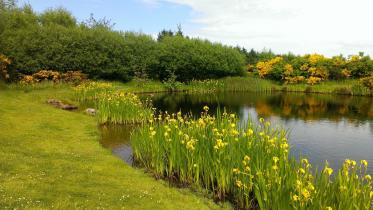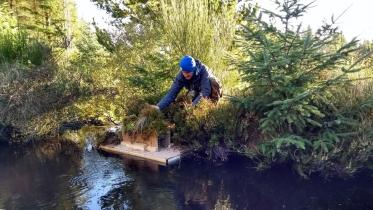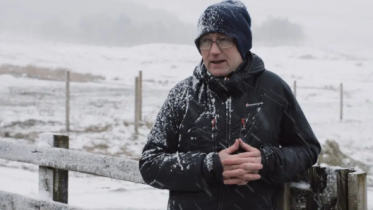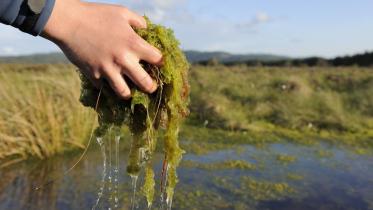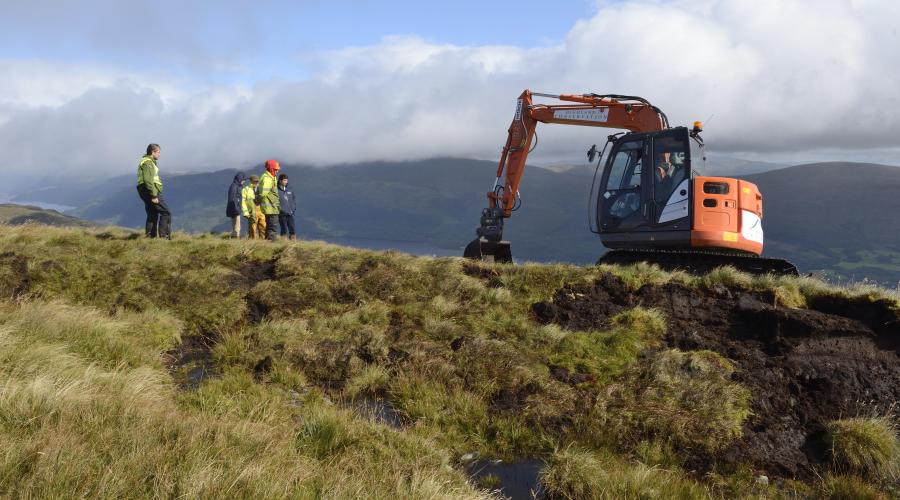
Nature-based jobs and skills
At NatureScot, we’re working with many partners including Skills Development Scotland to help to realise opportunities for new jobs presented by the transition to net zero.
At NatureScot, we’re working with many partners including Skills Development Scotland to help to realise opportunities for new jobs presented by the transition to net zero. We want to make sure there are skills pathways for young people to enter the nature-based sector, for example through developing apprenticeship models to support young people into nature-based jobs.
What are nature-based jobs?
New jobs being created range from peatland ecologists, hydrologists and engineers to jobs in green finance, remote-sensing, natural flood management, and low-carbon architecture and sustainable urban planning. The Green Jobs for Nature website provides more examples of the jobs we need to help create a better world for nature and people. In addition to the critical need to support young people’s employment opportunities, there is a need for lifelong learning as individuals, communities and organisations understand what the climate emergency means for our lives, our society and businesses. We want to support a just transition to net zero by helping people find new skills to access new job opportunities, and to help their employers respond to the climate and biodiversity challenges.
We have explored the wealth of opportunities available in Nature-based roles and the experiences of young people employed in this sector - watch our exciting new video series: Working for Nature.
Action Plan
We have published a revised Action Plan for Nature-based jobs and skills covering the period up to April 2024. This shows how NatureScot, working with partners, will take steps to support the skills and jobs needed to put in place nature-based solutions so that Scotland meets net zero targets by 2045. The Action Plan signals NatureScot’s intention to engage with the Climate Emergency Skills Action Plan and contribute to the Just Transition. The plan includes actions under four themes:
- Strategic engagement
- Engaging and inspiring young people
- Understanding demand – at a regional level and in key sectors
- Supporting Skills Development
The Plan is based on discussions with a range of organisations involved in these areas, and focusses on the year ahead. Further discussions with partners will identify longer-term actions.
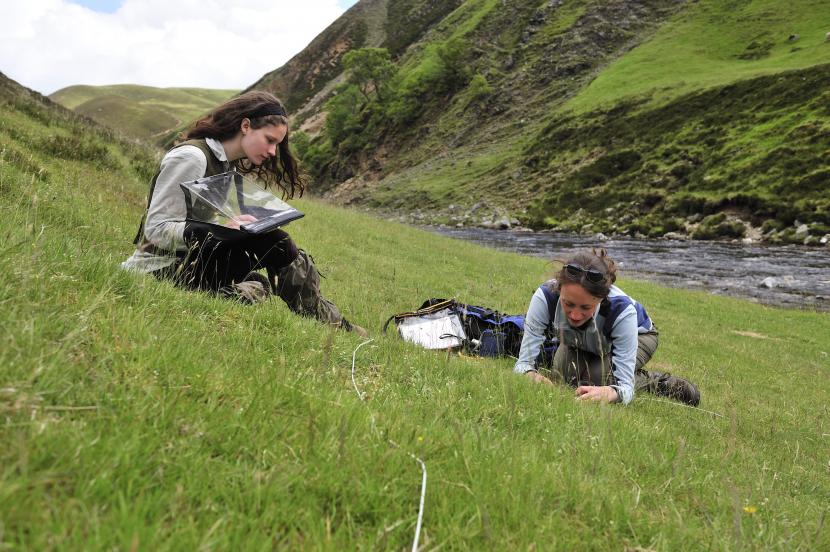
Louise Ross, a Phd research student from Aberdeen University and her field assistant surveying a quadrat in Glen Tilt, Tayside and Clackmannanshire Area.
Copyright: Lorne Gill/NatureScot
Evidence shows that the workforce needed to implement these nature-based solutions is currently insufficient in number, skills and training. It’s already a rapidly growing sector and anticipated to grow more as Scotland steps up efforts to meet net zero targets. Significant growth is expected in nature-based sectors such as peatland restoration, green infrastructure, woodland creation & restoration, and blue carbon.
Initial Assessment of nature-based jobs and skills
In 2020 we published an Analysis which showed that nature-based jobs already make a significant contribution to the Scottish economy. The report reveals the huge opportunity for nature-based jobs to help Scotland secure a green recovery from the COVID-19 pandemic and support the transition towards a net-zero economy. It is the first baseline analysis of nature-based jobs across Scotland and is a vital step in increasing our understanding of where opportunities lie and where barriers need to be overcome. The increase in skilled jobs needed to meet long term Scottish climate and biodiversity targets is a big opportunity for the Scottish wellbeing economy.
Key messages
- Jobs in the nature-based sector make a significant contribution to the Scottish economy amounting to 195,000 jobs or 7.5% of Scotland’s workforce in 2019. (This is likely to be an underestimate, given the difficulty in separately identifying a number of key nature-based sectors).
- Nature-based jobs grew at more than five times the rate of all jobs in Scotland in the period 2015-19 and accounted for one third of all job growth in Scotland in this period.
- Significant further growth in nature-based jobs is anticipated on the back of expansion in activities required to meet our net zero targets. Growth in jobs in nature-based sectors such as blue carbon, woodland planting and restoration and peatland restoration between now and 2030 is expected to be significant.
For more information contact:
Claudia Rowse, Acting Deputy Director of Sustainable Growth, NatureScot - [email protected]
Ivan Clark, Nature-based Jobs and Skills Manager, NatureScot - [email protected]
Becky Shaw, Rural Development Adviser, NatureScot - [email protected]
Find out more
- Nature-based solutions
- Nature-based Jobs and Skills Week - 13-17 March 2023
- Young People - Learning Outdoors and Developing Skills. For information on outdoor learning for teachers and youth workers
- NatureScot and Youth Engagement to find out more about the programmes and projects we are involved with to increase access, engagement and environmental decision-making of young people in nature.
- Attracting young talent to NatureScot
- Podcast: Attracting young people to green jobs
- Video playlist: Early career advice for budding environmentalists
- Young people and the outdoors
- Working and volunteering with us
- Current vacancies
